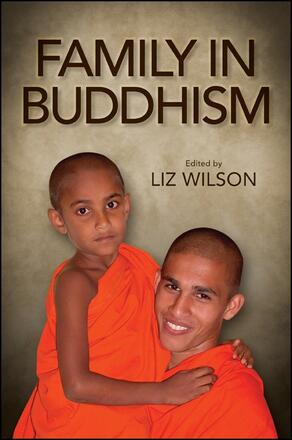
Family in Buddhism
Alternative formats available from:
A wide-ranging exploration of Buddhism and family in Asia--from biological families to families created in monasteries.
Description
The Buddha left his home and family and enjoined his followers to go forth and "become homeless." With a traditionally celibate clergy, Asian Buddhism is often regarded as a world-renouncing religion inimical to family life. This edited volume counters this view, showing how Asian Buddhists in a wide range of historical and geographical circumstances relate as kin to their biological families and to the religious families they join. Using contemporary and historical case studies as well as textual examples, contributors explore how Asian Buddhists invoke family ties in the intentional communities they create and use them to establish religious authority and guard religious privilege. The language of family and lineage emerges as central to a variety of South and East Asian Buddhist contexts. With an interdisciplinary, Pan-Asian approach, Family in Buddhism challenges received wisdom in religious studies and offers new ways to think about family and society.
Liz Wilson is Professor of Comparative Religion at Miami University in Ohio. She is the editor of The Living and the Dead: Social Dimensions of Death in South Asian Religions, also published by SUNY Press, and the author of Charming Cadavers: Horrific Figurations of the Feminine in Indian Buddhist Hagiographic Literature.
Reviews
"…for students and scholars of Buddhist Studies [Family in Buddhism is] groundbreaking and speak[s] to exciting ways of rethinking the male-dominated and eremitic characterizations of Buddhist monasticism that have become normative in the field." — Journal of the American Oriental Society
"Wilson … frames the pieces with an introduction that effectively grounds their specialized and occasionally esoteric focuses. This work is best suited for advanced undergraduates and graduate students learning to think outside the box of traditional scholarship and methodologies." — CHOICE